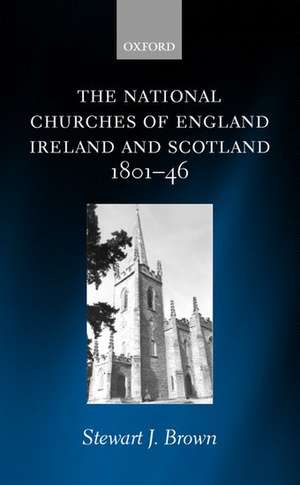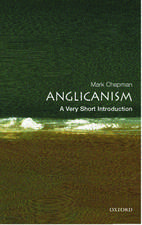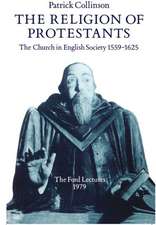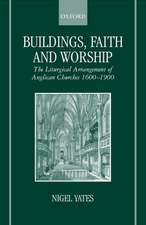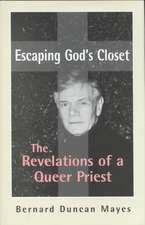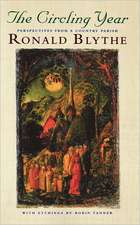The National Churches of England, Ireland, and Scotland 1801-46
Autor Stewart J. Brownen Limba Engleză Hardback – 6 dec 2001
Preț: 1143.12 lei
Preț vechi: 2295.17 lei
-50% Nou
Puncte Express: 1715
Preț estimativ în valută:
218.79€ • 236.17$ • 183.45£
218.79€ • 236.17$ • 183.45£
Carte tipărită la comandă
Livrare economică 07-14 aprilie
Preluare comenzi: 021 569.72.76
Specificații
ISBN-13: 9780199242351
ISBN-10: 0199242356
Pagini: 472
Dimensiuni: 146 x 226 x 29 mm
Greutate: 0.74 kg
Ediția:New.
Editura: OUP OXFORD
Colecția OUP Oxford
Locul publicării:Oxford, United Kingdom
ISBN-10: 0199242356
Pagini: 472
Dimensiuni: 146 x 226 x 29 mm
Greutate: 0.74 kg
Ediția:New.
Editura: OUP OXFORD
Colecția OUP Oxford
Locul publicării:Oxford, United Kingdom
Recenzii
Stewart Brown is the first in the modern period to have tried to produce a comprehensive study setting all three churches in comparative perspective. With a wealth of material to hand, this was an ambitious task. The result is a triumph of clarity and scholarship ... this will become a vital resource for historians of British religion.
... succeeds in setting a new agenda for the study of religious establishments in the United Kingdom and therefore should command the attention of both religious and political historians of Britain and Ireland.
... exceptionally well-written.
A very pertinent book at a time when the established status of the Church of England is becoming a live political issue.
Wide-ranging and unusual survey of the national Churches of the United Kingdom in the first half of the 19th century ... Brown's study is unusual in its scope, and because it presents a number of historic models for "established" and "national" Churches.
Excellent book ... It is Brown's achievement to demonstrate conclusively that the early ninteenth-century histories of the national Churches were in fact inextricably intertwined because all were enrolled in a state-sponsored project to consolidate the newly united kingdom. Brown's accounts of the individual histories of the three Churches are admirably grounded in a wide range of source material and an acquaintance with important recent scholarship.
The novelty of the argument lies in Brown's exposure of both the common dynamics simultaneously driving events in England, Scotland and Ireland, and also of how developments in one Church could have significant, sometimes paradoxical consequences for the others ... Brown provides a satisfyingly coherent narrative ... Stewart Brown provides a fruitful new agenda for ecclesiastical historians.
... succeeds in setting a new agenda for the study of religious establishments in the United Kingdom and therefore should command the attention of both religious and political historians of Britain and Ireland.
... exceptionally well-written.
A very pertinent book at a time when the established status of the Church of England is becoming a live political issue.
Wide-ranging and unusual survey of the national Churches of the United Kingdom in the first half of the 19th century ... Brown's study is unusual in its scope, and because it presents a number of historic models for "established" and "national" Churches.
Excellent book ... It is Brown's achievement to demonstrate conclusively that the early ninteenth-century histories of the national Churches were in fact inextricably intertwined because all were enrolled in a state-sponsored project to consolidate the newly united kingdom. Brown's accounts of the individual histories of the three Churches are admirably grounded in a wide range of source material and an acquaintance with important recent scholarship.
The novelty of the argument lies in Brown's exposure of both the common dynamics simultaneously driving events in England, Scotland and Ireland, and also of how developments in one Church could have significant, sometimes paradoxical consequences for the others ... Brown provides a satisfyingly coherent narrative ... Stewart Brown provides a fruitful new agenda for ecclesiastical historians.
Notă biografică
Professor of Ecclesiastical History and Dean of the Faculty of Divinity, University of Edinburgh
